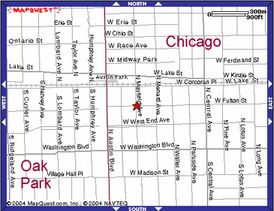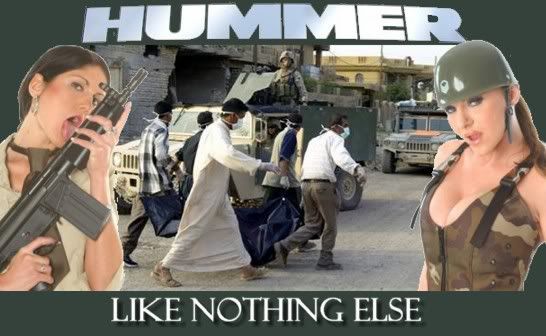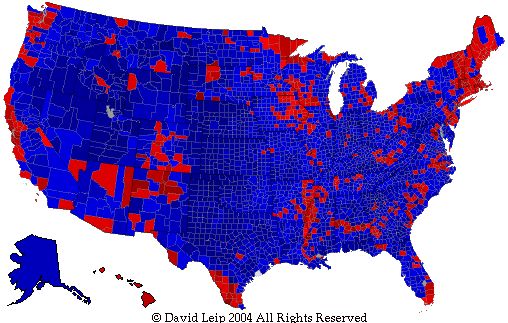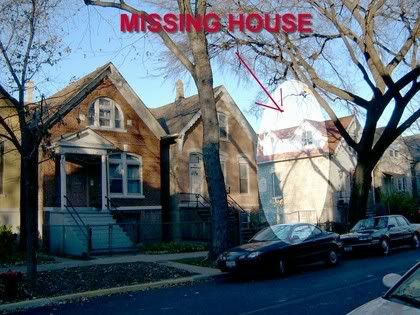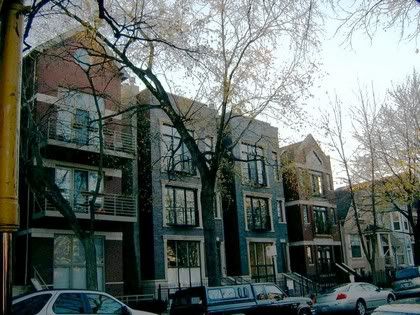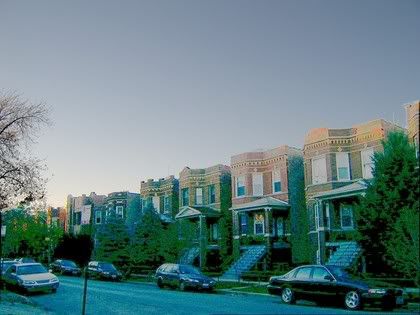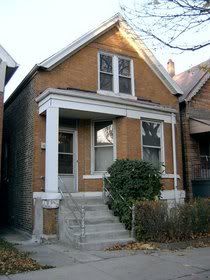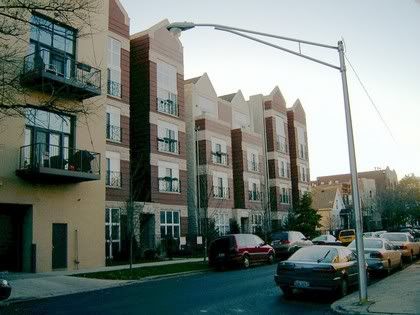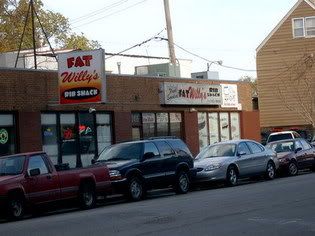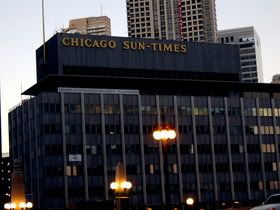The program is controversial in some quarters, but I strongly support it, in part because it was introduced just as New Urbanism was coming into its own as a development scheme, with the result the Hope VI in effect destroys modernist monstrosities and puts traditional neighborhoods in their place, in the process demonstrating the viability of traditional neighborhood design to developers. It's true that there is a patronizing element to the program concept; destroying the bad "neighborhood dynamics" of the poor and putting them in housing where they can benefit from observing the better "moral habits" of the middle class, etc. But another interpretation holds that with residential integration, poor people will benefit from amenities put in place for the middle class: public safety, parks, good schools and so on.
And let's face it, the housing sucked. The old public housing high rises, in addition to being a really poor design based on the most idiotic of Modernist theories, were cheaply constructed, shoddily maintained, and horrible to live in. In Chicago, they were sited far away from jobs, placed where they were intentionally to maintain segregation. Much of the federal money for construction was simply pocketed by unscrupulous contractors. The unions cashed in too (they were the intended beneficiary of the program anyway), a licensed electrician had to be present and paid an hour's wage to plug in a refrigerator according to the work rules. So yes, existing communities will be destroyed, inconveniencing a lot of people. But chances are better than even whether that they'll end up in a better situation, whether they move into replacement housing or take a Section 8 voucher and leave the neighborhood. The only people who should be seriously concerned are gang members forced to move into somebody else's territory, and those guys bear some responsibility for their own troubles.
Public housing is associated in the public imagination with huge urban high-rise projects like Chicago's Cabrini-Green, perhaps the country's most notorious neighborhood. But there are literally hundreds of Public Housing Authorities in Illinois, and thousands around the country. Longview in Decatur was a collection of townhouses built back in the New Deal era. They looked like this:
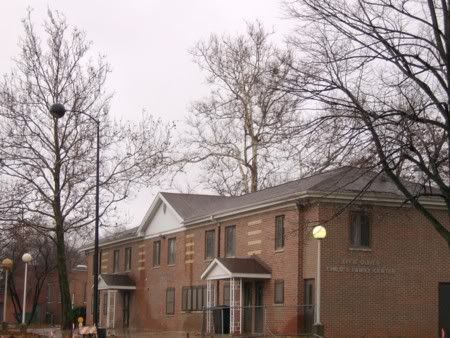
The last remaining Longview townhouses, currently used as a Head Start facility
The Longview Project had 386 units, 275 of which were occupied by "families in good standing" at the time of the initial grant application. The new development, which covers the site of the old housing project, will have 650 units, including about 260 units of public housing - sliding-scale rents set at 1/3 of income, reserved for families making less than 30% of Area Median Income (AMI). There will also be about 250 units with a low, fixed rent targeted to families making 30%-60% of AMI. These units are actually funded by a funky IRS tax scheme through the Illinois Housing Development Authority - developers are granted tax credits, which they can "sell" at a discount to raise funds for the project. These days, the government won't fund social services, but they do love their tax cuts. The rest of the housing is to be rented or sold to the general public. The idea is that the different types of housing shouldn't be identifiable from the street. From what I can see they have done a pretty good job of this:
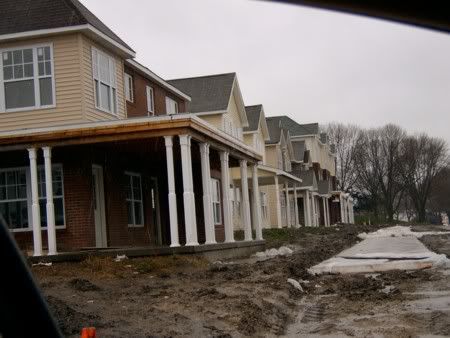
Looks more or less like a normal neighborhood, doesn't it? The issue that came up is that Decatur has been shrinking in recent years, and there is a large supply of middle class housing. So new construction in the city proper costs more than market value for a home: it costs about $100,000 per unit to build, yet older houses are available nearby for $90,000 or less. So market-rate housing in central Decatur is a money-losing proposition.
Compare this to Cabrini-Green, where market-rate housing sells for several hundred thousand dollars a unit and is considered a good deal because of its proximity to Old Town, the Gold Coast, the Magnificent Mile and downtown. At Cabrini, developers have wanted to get at the CHA's land for years. In Decatur, the neighborhood stood largely empty and unused for years; in fact the city is trying to use the Hope VI project to spur new development downtown and on the Near North Side. So far this seems to be working - in the few blocks around Wabash Crossing, a new Walgreens is going up and private developers are building townhouses - the first privately developed housing in central Decatur in years.
So both projects are in some sense neighborhood development or "gentrification" projects, and there's nothing wrong with that, especially if you want to see traditional neighborhoods survive and thrive rather than decay and die. And anyway, the Cabrini project is the only way somebody like me could ever afford to live in Old Town, and I've given it some thought.
Design-wise, Wabash Crossing is a mixed bag. The new buildings use the same mix of materials used in the kind of new housing going up at the outskirts of town, a mix of brick and siding. Some of them mimic the more traditional designs of Decatur housing:
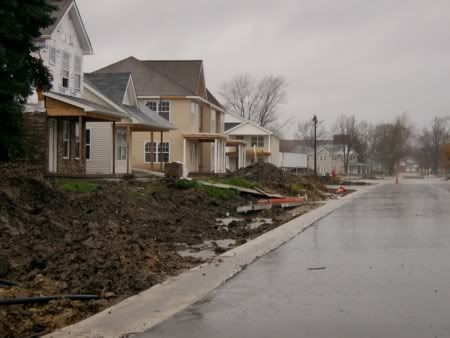
Other units look a little more like townhouse or apartment complexes:
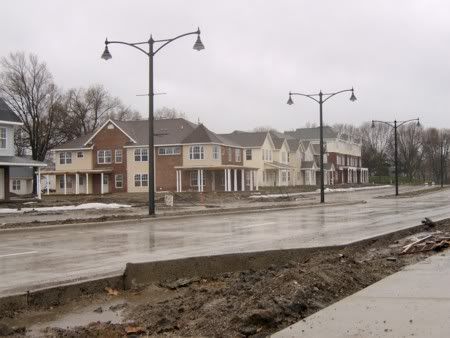
Now it's not finished yet, and when I was there it was obviously a mud pit, so to some extent I'm going to have to reserve judgement. And looking at these pictures now I have a more positive reaction than I did on site in the rain. But obviously it's not quite the kind of design I like, the more classic brick and stone look of older neighborhoods. But there are some very positive developments here. First of all, as I said it looks like new housing built elsewhere. So obviously a lot of people whor are used to seeing this stuff and are willing to buy it won't think it looks different, or weird, or like "the projects." Indeed, after poking around the site I have no idea which units are public housing and which are moderate-income or market rate. So the design is very egalitarian and none of it says "poor people live here," indeed it looks better than the run-down neighborhood around it, if only because it's new. And it's a true urban design, with sidewalks and houses that face the street, often with porches or patios. True, often there is parking where you'd expect to find a back yard, giving the inside of the block the feel of one of those horrible suburban townhouse developments:
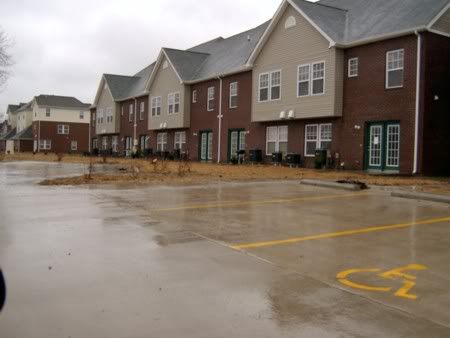
But none of that will be visible from the street when all the buildings are in place. The project does include a decent amount of open space, playground and so on, as well as a new school, and for me the important thing is that it restores the old city grid to the area and knits it together with the surrounding area. And some of the new multifamily designs look better, and more urban, that some of the "high end" condos that have been built on my block in Chicago.

So overall I'm encouraged by what I see here. There's been opposition to the program from all sides. Some public housing advocates, including residents who had attained positions of authority in residents' organizations, claim they're being forced out of their homes to suit the whims of wealthy people. They believe that existing projects should have been repaired, or that new housing should have been constructed before the old housing was demolished, and that all existing residents should be guaranteed a spot in the new development. They are often angry that some residents won't be allowed back because they failed to comply with provisions of their old lease, etc.
I don't buy this argument. First of all, the idea that HUD and the local PHA were going to fix the old housing strikes me as ridiculous. In this counry, in this political climate, there was never any chance that significant new investment would be made in existing projects. Secondly, there has never been enough public housing to meet existing housing needs. There are long, long waiting lists to get in. Why should existing residents have a right to that housing that other poor people don't have, even if they have violated their lease? Anyway, my last landlord sold the house from under us and I had to move, too - them's the breaks, guys.
On the other side are people who don't think the government should be in the business of providing housing for poor people at all. But as I intend to keep pointing out until I turn blue and fall over, the government policies, especially local government policies, have caused an artificial housing shortage. And Hope VI, both by building decent, affordable housing and by pioneering good design in an era of Modernist and Postmodernist drek, can model good development that can be replicated by the private sector (if government will allow it). This strategy carries risks, of course, the biggest being public neglect. I hate the design of old school public housing, but design alone didn't make it hell, lack of approplrate maintenance did. Thanks to the unwillingness or inability of housing authorities to maintaint the properies, they were vermin-infested, unsafe, dirty, and often elevators, water, even heat didn't work. Better design won't mean much if the PHAs or developers won't maintain the properties. Most of these projects are privately managed. The public needs to be prepared to reclaim control as soon as we learn that these companies are not doing their jobs. Otherwise these new neighborhoods will end up just as hellish as the places they are replacing.



